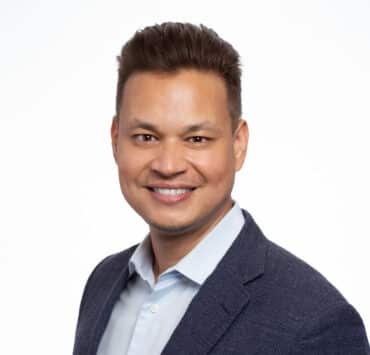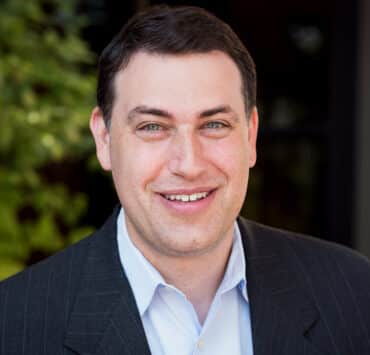|
Getting your Trinity Audio player ready...
|
“You never really understand a person until you consider things from his point of view . . . Until you climb inside of his skin and walk around in it.”
Destiny Washington, senior counsel of employment for Southwire Company, is a firm believer in this credo spoken by small Georgia town lawyer Atticus Finch in Harper Lee’s classic novel, To Kill a Mockingbird.
“When someone opens themselves up to someone else’s perspective and puts themselves in someone else’s shoes, they learn so much,” she says. “That’s genuinely how I feel, and it’s how I encourage people to look at life. Don’t be in your own bubble.”
Washington continues, “During the pandemic, we were all in the same boat. People were feeling job insecurity, dealing with childcare issues, or stressing over internet interconnectivity issues working at home. We should all empathize with each other—the world could be a better place.”
Washington, a New Orleans native, now herself lives in Georgia, where Southwire is based. She recently marked her first anniversary with the company that bills itself as one of the leading manufacturers of wire and cable used in the transmission and distribution of electricity around the world, according to its website.
“Southwire was a client of my old law firm,” she explains. “I have a personal attachment to Southwire because my father is an electrician. He was so excited when I told him about my interview with them. It was his chance to share electricity jargon and all of Southwire products he has seen at Home Depot.”
At Southwire, Washington is focused on the company’s people and culture (human resources) function. “This includes anything that has to do with the employment lifecycle, from hiring and benefits to discipline, termination, and retention,” she says. She also counsels on compliance and supports merger and acquisitions due diligence.
“When someone opens themselves up to someone else’s perspective and puts themselves in someone else’s shoes, they learn so much. That’s genuinely how I feel, and it’s how I encourage people to look at life. Don’t be in your own bubble.”
Destiny Washington
Washington enjoyed her time working in private practice, but prefers her in-house role. “I feel like I’m part of a team that is working toward one goal, to make the company the best place it can be,” she says. “The teamwork and collaboration is genuine, in part, because there is a personal aspect. We are working to improve an organization that employs us. There is a laser focus on ‘the people behind the power,’ as Southwire puts its people first.”
Perhaps the overriding aspect of Washington’s role, she says, is diversity, equity, and inclusion (DEI). While in her previous position at a boutique law firm, she was named a 2020 fellow for the Leadership Council on Legal Diversity, an organization committed to increasing diversity in the legal profession. In this role, legal leaders committed to DEI gather together to share ideas regarding increasing diversity amongst their organizations.
Through perfectly tailored training, they explore concepts like “design thinking,” which encourages a people-centered approach to problem solving. “Design thinking starts with empathizing with the population for whom you are seeking to problem solve,” she says. “A starting point in empathizing with a person is to actually listen to them and put yourself in their shoes.”
Washington credits her experience in the military—first in the Louisiana Army National Guard, and then the US Army—with instilling in her an appreciation for different perspectives and different cultures. At seventeen, she joined the military as a way to pay for college.
“As a public affairs specialist, I interviewed fellow soldiers for feature articles in our field publication,” she remembers. “Through conducting those interviews, I immersed myself in the experiences of so many people of different races, religions, ethnicities, and ages. I even learned to salsa when I was deployed to Bosnia and Herzegovina. It’s one of the most valuable things I got out of my military experience. It helps me as I partner with people and culture to create a culture of collaboration.”
“I feel like I’m part of a team that is working toward one goal, to make the company the best place it can be.”
Destiny Washington
Washington also credits her unique career trajectory to growing her network, which is key to practicing empathy. She began her legal career representing and organizing union members, then she spent several years litigating on behalf of state and local governments, including advising law enforcement and public school districts. She did not work at a large law firm until thirteen years into her legal career, and she recently transitioned into a senior employment counsel role with Southwire.
While she applauds Southwire with looking beyond the traditional career path of in-house counsel in hiring her, she acknowledges that her “well-rounded” background provides a huge asset to the company.
“You won’t often find mid-career employment counsel who knows the steps to annex a parcel of land into a city, who has drafted occupational tax ordinances, who can litigate a Section 1983 case, and who knows the defenses to a hostile environment sexual harassment claim,” she says.
In addition to DEI initiatives, Washington focuses on office culture post-pandemic. “It was easy to go from working in an office to working remotely. It’s not so easy to go back,” she says. “[People are] realizing how much unproductive time is spent commuting and are configuring their lives around being at home. We are working to find creative ways to retain talent and to keep them motivated. At Southwire, we recognize that employees are the backbone of a company.”


